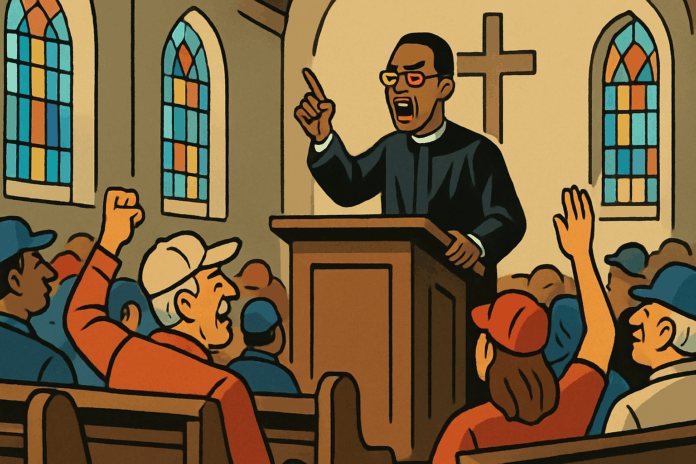The Internal Revenue Service (IRS) has agreed to allow pastors to endorse political candidates during worship services without risking their church’s tax-exempt status, following a legal settlement to a lawsuit. The move, announced July 8, 2025, marks a significant shift in the enforcement of the Johnson Amendment, a 1954 law that has long restricted political activity by tax-exempt organizations, including churches.
Background: The Lawsuit and Settlement
The change comes as part of a consent judgment settling a lawsuit brought by the National Religious Broadcasters (NRB) and two Texas churches. The plaintiffs argued that the Johnson Amendment’s restrictions on political speech from the pulpit violated their First Amendment rights to free speech and free exercise of religion. The IRS, in settling the case, agreed that pastors may now make political endorsements during religious services without fear of losing their church’s tax-exempt status.
According to Politico, the consent judgment effectively creates a new exemption to the Johnson Amendment for religious leaders, though it does not repeal the law itself. The IRS will continue to prohibit direct political spending by churches, such as purchasing advertisements or making financial contributions to campaigns.
Key Points of the Settlement
- Pastors may endorse political candidates during worship services without risking their church’s tax-exempt status.
- Direct political spending by churches remains prohibited—churches still cannot fund campaign ads or donate church funds to candidates.
However, critics warn that the settlement could open the door to increased political activity and political influence within religious organizations.
Johnson Amendment Remains—With Limits
Despite the new exemption, the Johnson Amendment itself remains in place. The IRS emphasized that churches are still barred from making direct financial contributions to political campaigns or purchasing political advertisements. The agency will continue to monitor and enforce these restrictions.
The settlement could face further challenges or legislative action, as it represents a significant reinterpretation of existing law. For now, however, the agreement stands as a major change in the relationship between religious organizations and political activity in the United States.

